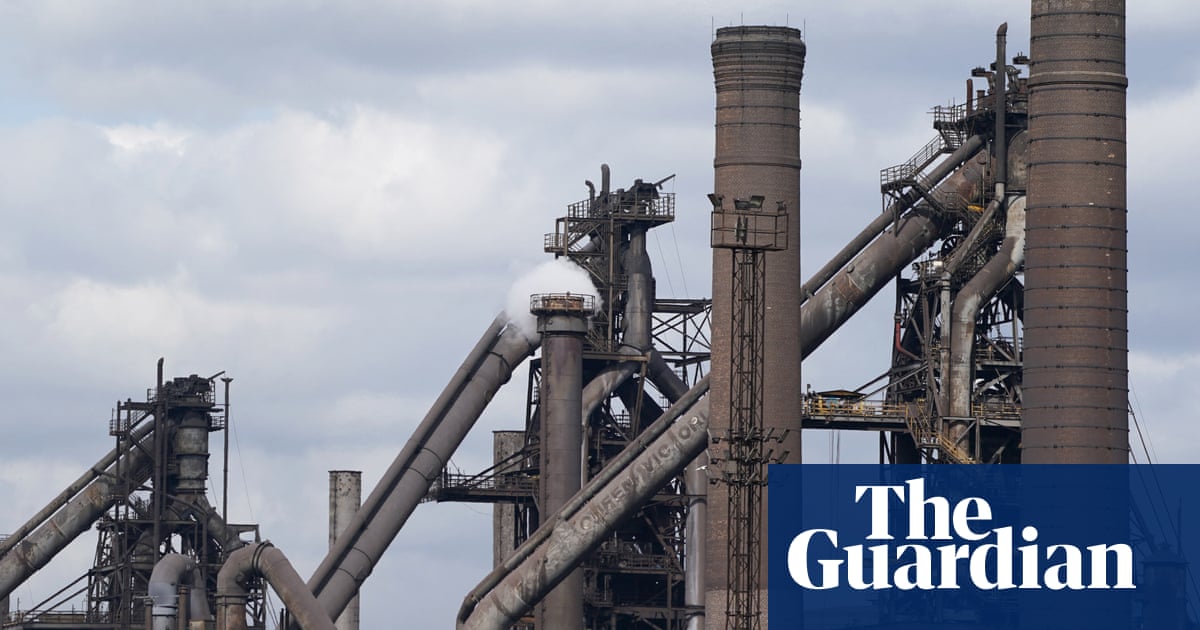British Steel has said it will hire more than 180 new employees, as it prepares to ramp up iron and steel production for the first time since its government rescue.
The company has started recruiting for 165 roles in Scunthorpe and a further 17 at its operations in Teesside and Skinningrove, to support production at its two blast furnaces.
It comes less than a month after ministers recalled parliament toapprove emergency legislationto take control of the site and continue production, amid concerns that British Steel’s Chinese owner, Jingye, planned to let its furnaces run cold.
There had been the prospect of imminent closure of the blast furnaces and the end of production of primary steel in the UK, with up to 2,700 steelworkers at Scunthorpeat risk of redundancy.
British Steel removed the threat of job losses a fortnight ago after the government’s intervention.
Increasing production could be one way of stemming losses of more than £700,000 a day at Scunthorpe, according to Jingye. Jingye remains the legal owner but the government has power to direct the company.
Allan Bell, the interim chief executive of British Steel, said: “With the backing of the UK government, we are focused on cementing British Steel as one of the world’s leading manufacturers of steel. These are exciting opportunities across our business, offering rewarding careers, which will play important roles in building stronger futures for our business and the UK economy.”
The government takeover prompted a rush in Whitehall to secure new shipments of raw materials to feed the two furnaces at the Scunthorpe plant, named Queen Anne and Queen Bess.
Last month a shipment of more than 55,000 tonnes of coking coalarrived in the UKfrom Bluescope Steel’s plant in Australia.
Alun Davies, national secretary for steel at Community, a union representing steelworkers, said Scunthorpe has been short of staff.
“We regularly highlighted that there was a need to recruit to keep up with workload and reduce reliance on overtime,” he said. “This went unheeded for far too long. It’s good to see that the UK government and UK management team are taking swift action to address this by recruiting new staff across the business.”
Sign up toBusiness Today
Get set for the working day – we'll point you to all the business news and analysis you need every morning
after newsletter promotion
The new coal means steelmaking at Scunthorpe is expected to continue for months and there will not be a need for a“salamander tap”, a process in which a hole is drilled in the bottom of a blast furnace to let out, or tap, molten metal and other leftovers known as slag.
The new open roles at the company include electrical and mechanical engineers, commercial, legal and occupational jobs, as well as entry-level shift manufacturing operators. British Steel said it also had opportunities in areas such as welding, nursing and customer services. The company will host a recruitment open day on Saturday 17 May at its Scunthorpe conference centre.
The government and the company will have to work on long-term plans for the future of the site. While the blast furnaces will continue operating in the coming months, they are not expected to last more than a few years, with a shift tomuch cleaner electric arc furnacesexpected to be pursued.
